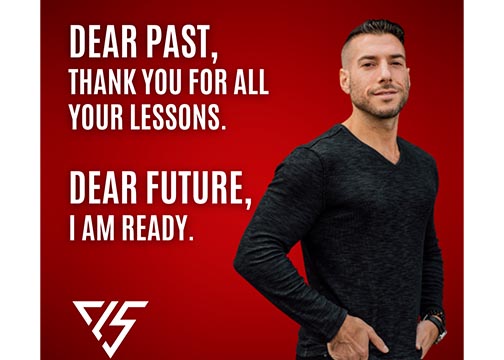Owner of Cultivate Lasting Symphony: Life Transformation Coaching

Tell us about your business?
The pandemic provided me the first opportunity in over a decade to take a minute for myself, no distractions. In this moment, the stars aligned for me, because you see, my passion has always been to help people and to inspire them to become their best selves. I finally was able to identify my true calling. From there, I wasted zero time, and the rest is history. I had realized my purpose, and in that moment that I had, I discovered that this isn’t about me.
Cultivate Lasting Symphony (CLS) would become a beacon of hope for the world. A shining light to lead the way for people to follow to enhance their lives. This may sound corny, but if you are familiar with Batman, he is supposed to represent a symbol of protection to his Gotham City. For me, CLS represents faith, transformation, and a way to revamp your mindset so that each of us can fulfill our own destiny.
Why did you choose to open your business and why this specific type of industry?
Timing is everything, right? When the pandemic hit, I had a moment to reflect for the first time in quite some time. And I didn’t like the path I was heading down. I wasn’t waking up excited or passionate. I saw mediocrity. I saw complacency. I saw average. And what hit me was this: I’ve always had an unparalleled effective ability to communicate with people to make them want to fulfill their potential. To make them want to overachieve. To make people want to succeed in all facets of life. And when the pandemic hit and I had that moment, I decided the responsibility was mine to help inspire the world and show each and every person what they’re truly capable of.
How did your time at UHart impact your knowledge and decision around opening your own business?
Phenomenal question. UHart, specifically the Barney School for Business, provided me with a strong foundation to start my career. UHart taught me skills like ownership, accountability, time management, prioritizing, and emotional maturity. I learned early on to be a sponge and ask questions, which I did throughout my experience at UHart. Big things happen when you put your ego aside, and the business world is no different. So, for me, after years of being a sponge and what I like to call “sharpening the axe” (studying, reading, journaling, and beating on my craft), I built two lucrative businesses from the ground up. A lot of success has to do with desire and work ethic. UHart showed me that by dedicating your time and energy consistently, leaving no stone unturned, there is nothing you can’t accomplish. In terms of CLS, I applied the same mentality that I cultivated at UHart (which helped me transform my previous businesses into lucrative juggernauts) when I pivoted and went all in on CLS. If you are questioning starting your own business or passion project, life’s too short not to try. Find the thing you absolutely love and make it your life. Because you see, people spend way too much time being miserable, spending time doing things they don’t love, such as jobs and relationships that they’re not passionate about. You might as well fail at something you love. Or better yet, maybe you’ll fly.
Do you have any advice for new entrepreneurs?
As a matter of fact, I do. Be adaptable. If this pandemic has taught us anything, it is that life and business can be unpredictable. You need to be able to improvise. There is always an audience. Always a customer to your product. You have to find them and find out how you can help and be of service to them. There is always a move to be made. Standing still and not adjusting is the one mistake I see a lot of businesses making right now. This is the perfect opportunity to get the creative juices flowing. Change generates fresh ideas and forces you to think outside the box, which is something I take great pride in. You must always be willing to recreate yourself. Be confident and assertive—don’t wait for things to happen, make things happen.